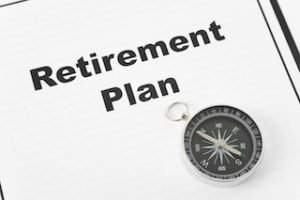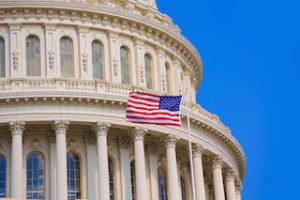Americans who receive guidance from financial advisors feel markedly more prepared for retirement, according to new findings from Northwestern Mutual’s Planning & Progress Study. According to the data:
• 70% of Americans with advisors said their retirement plan is designed to withstand market cycles compared to 30% of those who do not use an advisor.
• Nearly all those with an advisor (92%) have discussed retirement with someone relative to just half (51%) of those without an advisor.
• People without financial advisors are twice as likely (53%) as those with advisors (27%) to view lack of savings as an obstacle to financial security in retirement.
• 49% of people without an advisor have taken no steps to address the possibility of outliving their savings – three times as many as those with an advisor (15%).
“As people live longer, the economy continues to fluctuate, and healthcare and other costs increase, navigating retirement planning becomes more complex and overwhelming,” said Rebekah Barsch, vice president planning, Northwestern Mutual. “Working with an advisor is like having an experienced guide map out an itinerary for your retirement journey that’s tailored to your unique lifestyle goals and circumstances.”
The findings announced May 23 are part of Northwestern Mutual’s 2017 Planning & Progress Study, an annual research project exploring Americans’ attitudes and behaviors toward finances and planning. Released in multiple waves throughout the year, the Study launched in April with data on debt and the current state of financial optimism, respectively.

Financial Advice – the key to confidence and the antidote to anxiety?
In addition to a heightened level of retirement readiness, Americans who work with advisors tend to feel more financially confident overall. Notably, individuals with financial advisors are almost twice as likely as those without advisors to say they feel “very financially secure” (68% vs. 36%, respectively). Additionally, more than three quarters (77%) view themselves as “highly disciplined” or “disciplined” planners compared to 41% of those without an advisor. Good financial habits may be a key reason why people with advisors experience significantly less anxiety about debt, income, poor credit, and unplanned health or financial emergencies.
This optimistic outlook extends beyond personal finances:
• More than half (52%) of U.S. adults with advisors think the economy will be better this year than in 2016 compared to just 39% of those without advisors.
• 6 in 10 (59%) people with advisors believe that the American Dream is still attainable to most while only 4 in 10 (43%) of those without an advisor feel the same.
And the data suggest that Americans are increasingly embracing the value of professional financial advice. This year there was incremental growth in the number of Americans with an advisor (35%, up from 31% in 2016).
“Financial security is empowering,” continued Barsch. “It enables you to live confidently – with more flexibility and less stress. It’s encouraging to see greater awareness for the important role that financial advisors can play, not only in retirement planning, but in financial wellness overall.”
Women experience high levels of financial stress more than men
On a related note, of people who rate their financial stress 8 or above on a 10-point scale, 59% are women compared to 41% men.
This according to a recently released 2017 financial wellness survey by Four Seasons Financial Education (FSFE), a St. Louis-based provider of workplace financial wellness programs.
“Keep in mind that financial stress isn’t just about debt or low income earners,” says Travis Freeman, president of FSFE. “Nearly one third of this group earns more than $75,000 per year and over half earn more than $50,000 per year. Income isn’t the main issue, it’s what we do with our income,” said Freeman.
The same survey reviewed low financial stress respondents, or those with scores of one to three. Among the low financial stress group, 43% are female and 57% are male. The 2017 FSFE Financial Wellness Survey can be found at http://www.FSFE.com/survey.
About the Northwestern Mutual Planning & Progress Study: The 2017 Planning & Progress Study was conducted by Harris Poll on behalf of Northwestern Mutual and included 2,117 American adults aged 18 or older (2,117 interviews with U.S. adults age 18+ in the General Population and an oversample of 632 interviews with U.S. Millennials age 18-34) who participated in an online survey between Feb. 14 and Feb. 22, 2017. Results were weighted to Census targets for education, age/gender, race/ethnicity, region and household income. Propensity score weighting was also used to adjust for respondents’ propensity to be online. No estimates of theoretical sampling error can be calculated; a full methodology is available.













